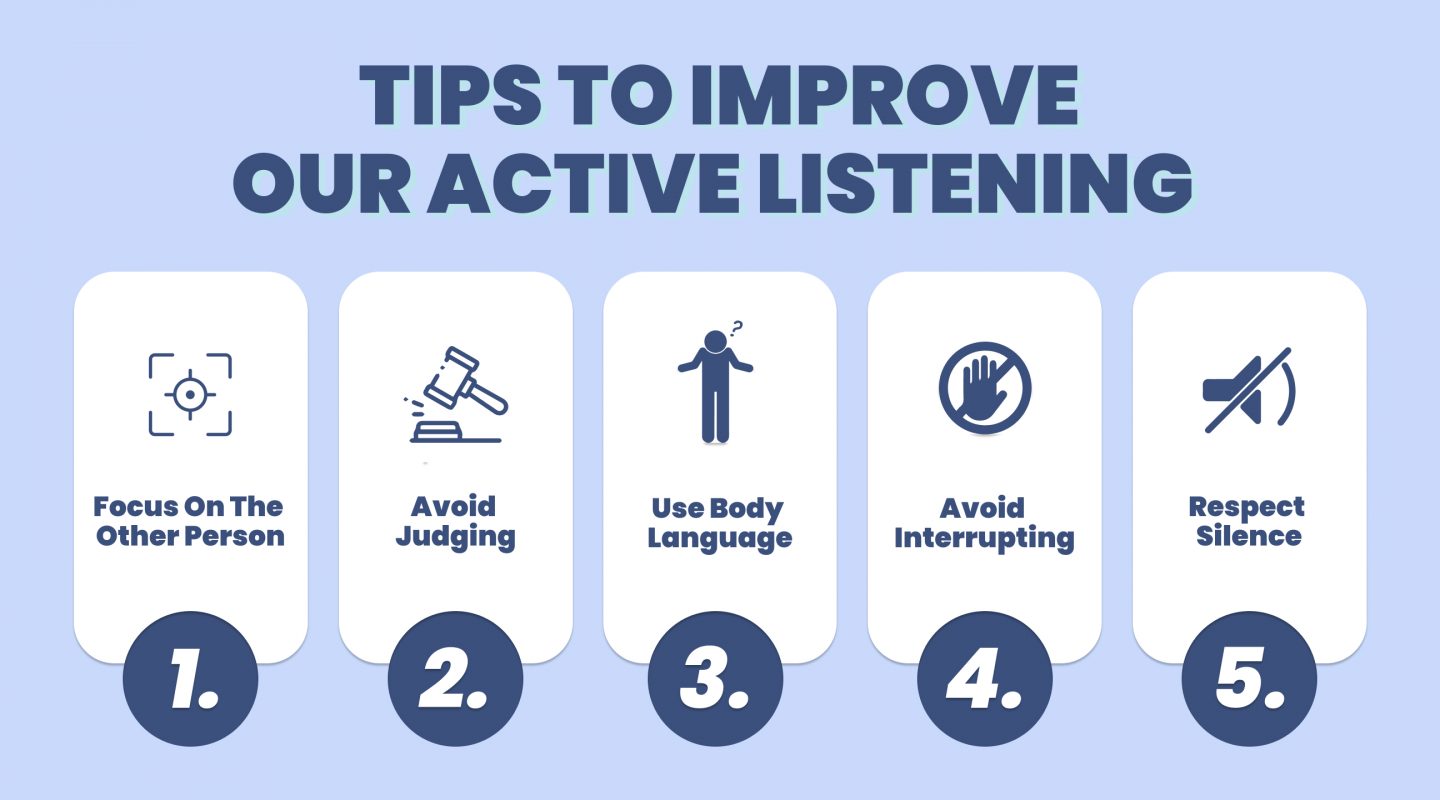
Active listening plays a vital role in effective communication, serving as the foundation for understanding, trust, and rapport between individuals. Its impact can be seen in various aspects of personal and professional interactions:
1. Enhancing Understanding:
- Active listening promotes clearer understanding by ensuring that the listener fully comprehends the speaker’s message, including the subtle nuances and emotional undertones.
2. Building Rapport:
- When a speaker feels genuinely listened to, it creates a sense of respect and trust. This is crucial in all relationships, whether personal or professional.
3. Resolving Conflicts:
- Many conflicts arise from misunderstandings. By actively listening, individuals can address the real issues at hand, which is the first step toward conflict resolution.
4. Encouraging Openness:
- People are more likely to speak openly and honestly when they feel the listener is attentive and engaged, leading to more authentic and productive conversations.
5. Improving Collaboration:
- In a team or group setting, active listening helps to ensure that all members’ ideas and concerns are heard and considered, which can enhance collaboration and team cohesion.
**6.
Facilitating Problem Solving and Decision Making:
- Active listening allows for a deeper understanding of problems, which is essential for developing effective solutions and making informed decisions.
7. Reducing Errors and Miscommunication:
- By carefully listening and confirming understanding, the likelihood of errors due to miscommunication can be significantly reduced.
8. Enhancing Leadership:
- Leaders who listen actively are better able to connect with their team, understand issues, and motivate their employees, which can lead to improved performance and morale.
9. Supporting Personal Development:
- For the listener, practicing active listening can improve cognitive skills such as focus, patience, and the ability to analyze and interpret information.
10. Increasing Speaker Confidence:
- When speakers feel heard, they are more confident in their communication, which can lead to more assertive and clear expression of ideas.
Active listening is not a passive activity; it requires conscious effort and practice. It’s an essential skill for anyone looking to improve their interpersonal communication, whether it’s in a one-on-one conversation, a group meeting, or even in a public speaking context. It’s a skill that fosters mutual understanding and cooperation, making it indispensable for effective communication.